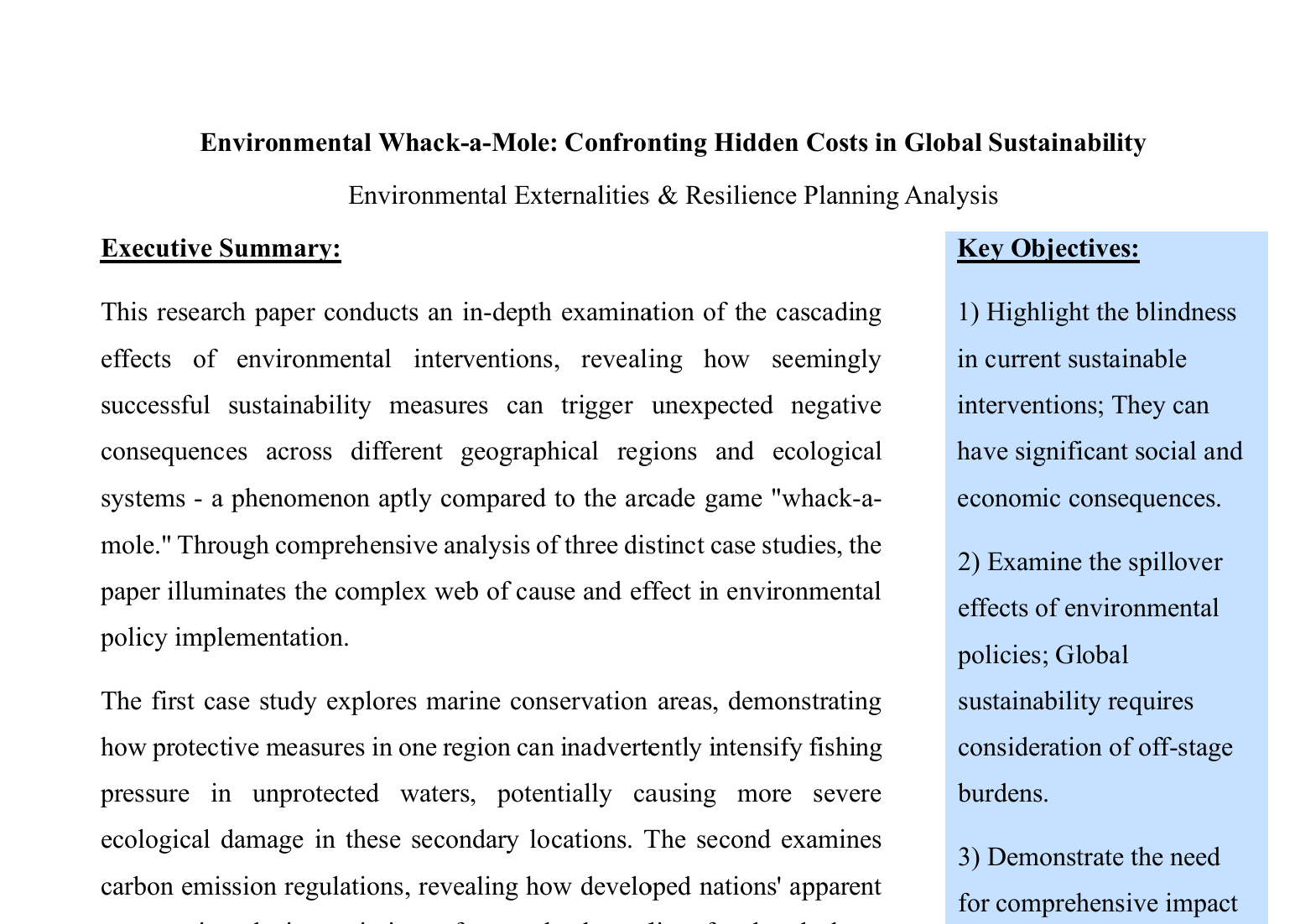
Environmental Whack-a-Mole: Confronting Hidden Costs in Global Sustainability
2022
Project Type: Global Climate Risk Analysis & Sustainability Strategy
Focus Areas: Climate Resilience, Environmental Spillovers, Sustainable Resource Management, Systemic Risk Reduction
“Environmental Whack-a-Mole Confronting Hidden Costs in Global Sustainability - Manreet Sohi.pdf”
Overview
This analysis reveals how to create more systems-based climate strategies that mitigate cascading environmental risks and prevent sustainability leakage. By examining case studies in marine conservation, carbon regulation, and biofuel expansion, the project uncovers how climate interventions in one region can unintentionally shift burdens to others. It emphasizes the need for globally coordinated, equity-centered solutions that address cross-border trade-offs and build true climate resilience.
Key Findings
Marine conservation areas, while protecting local marine ecosystems, inadvertently shifted intensive fishing pressure to less regulated waters in other regions, potentially causing greater ecological damage in those areas
Carbon emission reductions achieved by developed nations were largely offset by increased emissions in other countries, as industries relocated their manufacturing operations to regions with more lenient environmental regulations, resulting in a net increase in global emissions.
Biofuel initiatives, intended to promote renewable energy sources, led to widespread tropical deforestation as land was cleared for biofuel crop cultivation, disrupting local ecosystems and communities, displacing traditional agriculture, and affecting the livelihoods of indigenous populations.
Skills Applied
Environmental systems analysis- Conducting comprehensive research to understand how conservation policies and interventions can create cascading and unexpected side effects across different ecological systems, regions, and timeframes
Policy impact assessment- Performing detailed analysis of environmental protection measures through extensive case studies examining marine conservation areas, carbon emission regulations, and biofuel initiative programs to evaluate their direct and indirect consequences on global ecosystems
Academic research synthesis- Systematically integrating findings from environmental science literature, policy research, and real-world case studies to develop a nuanced understanding of complex sustainability challenges and their interconnected nature
End Result: This project underscores the need for globally coordinated climate strategies that prevent burden shifting and build resilient, systems-based solutions to sustainability challenges.
